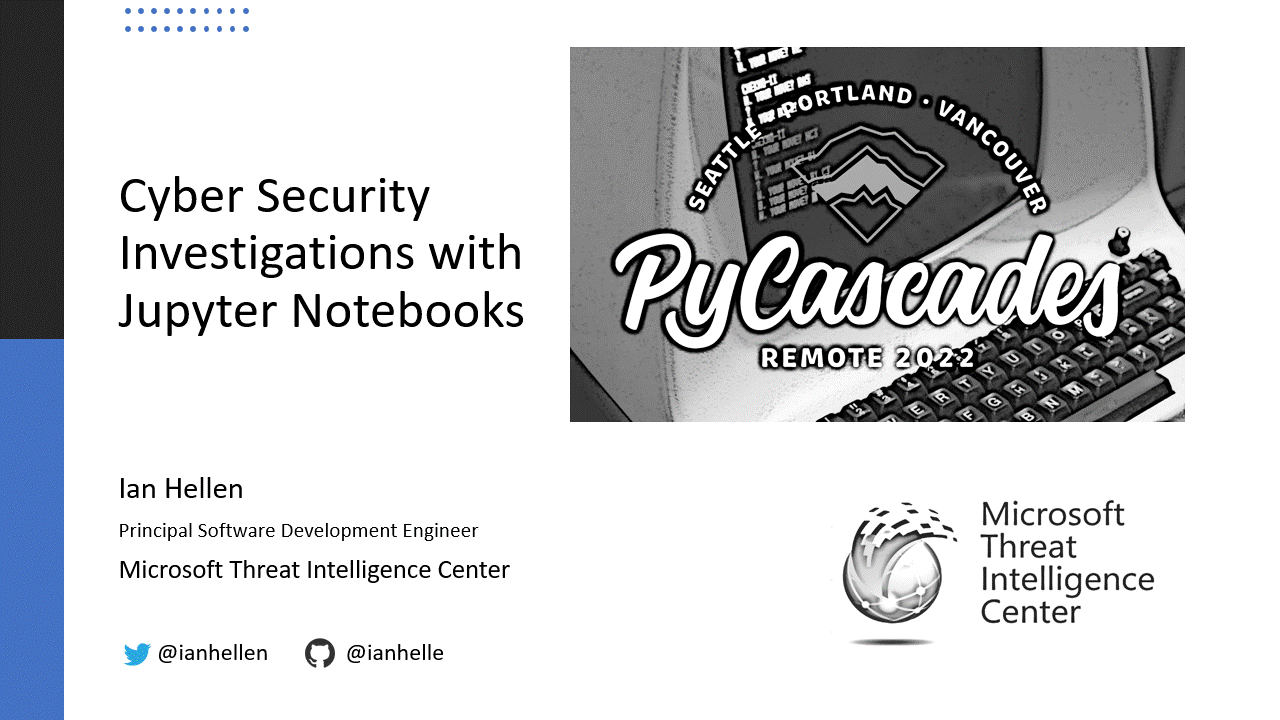MSTICPy - CyberSecurity with Jupyter Notebooks
PyCascades 2022
Ian Hellen
This repo contains the Jupyter notebook and PowerPoint presentation used in the talk (Sat 5th Feb 2022).
A lot of the examples in the notebook (most of those shown in the presentation) will run standalone.
Slides
The slides are available as:
Notebook
Running the notebook in MyBinder
Running locally
Installing MSTICPy
The ones that use MSTICPy require installing MSTICPy in your Python environment. Minimum Python version is 3.6, we recommend Python 3.8 or later.
pip install msticpyMSTICPy Configuration
Some of the examples also require configuration settings.
A sample msticpyconfig.yaml is available in this repo.
The GeoIP lookup examples need a Maxmind GeoLite account (this is free).
You must get the API key from your account settings and add it to the
MSTICPy settings. The second code cell in the notebook let's you
configure MSTICPy settings - choose the GeoIP Providers tab and
add GeoIPLite.
After entering the settings click, Update and then
Save Settings
The examples using Threat Intelligence sources need one or more threat intelligence providers, e.g. Virus Total and AlienVault OTX. Create accounts at one or more of these and obtain API keys from your account settings.
In the MSTICPy settings, go to the TIProviders tab, add the appropriate provider and fill in the settings.
After entering the settings click, Update and then Save Settings
